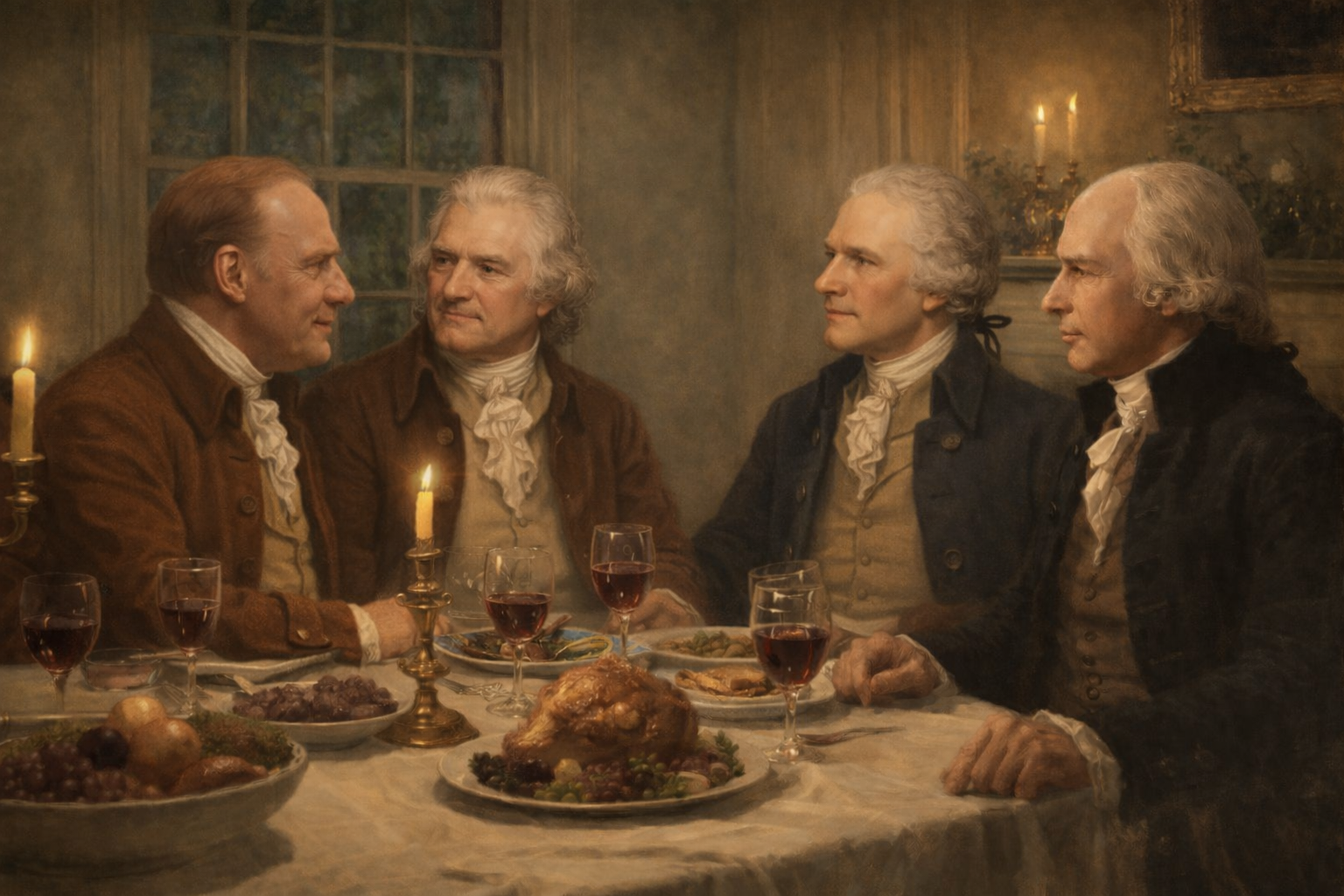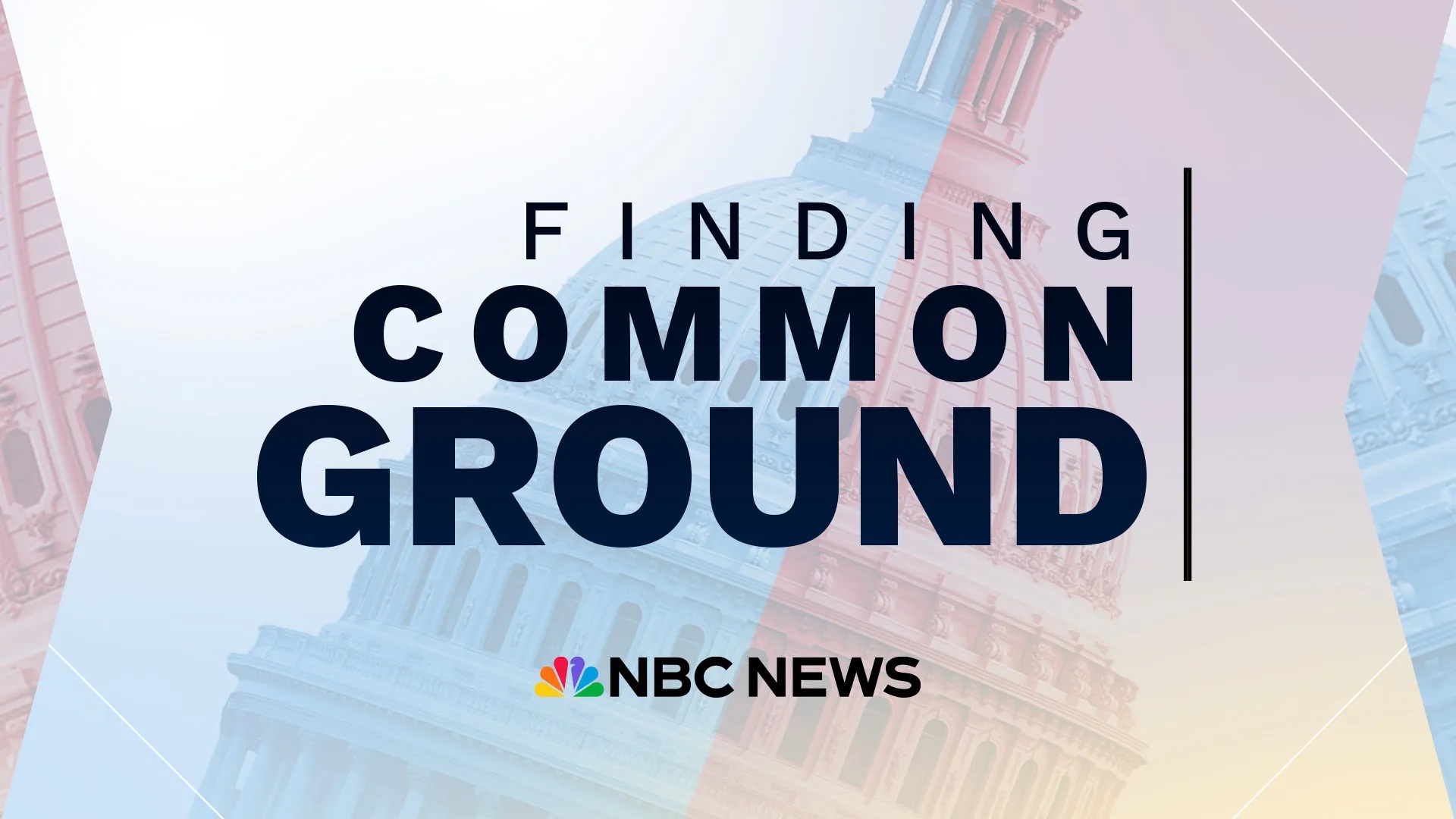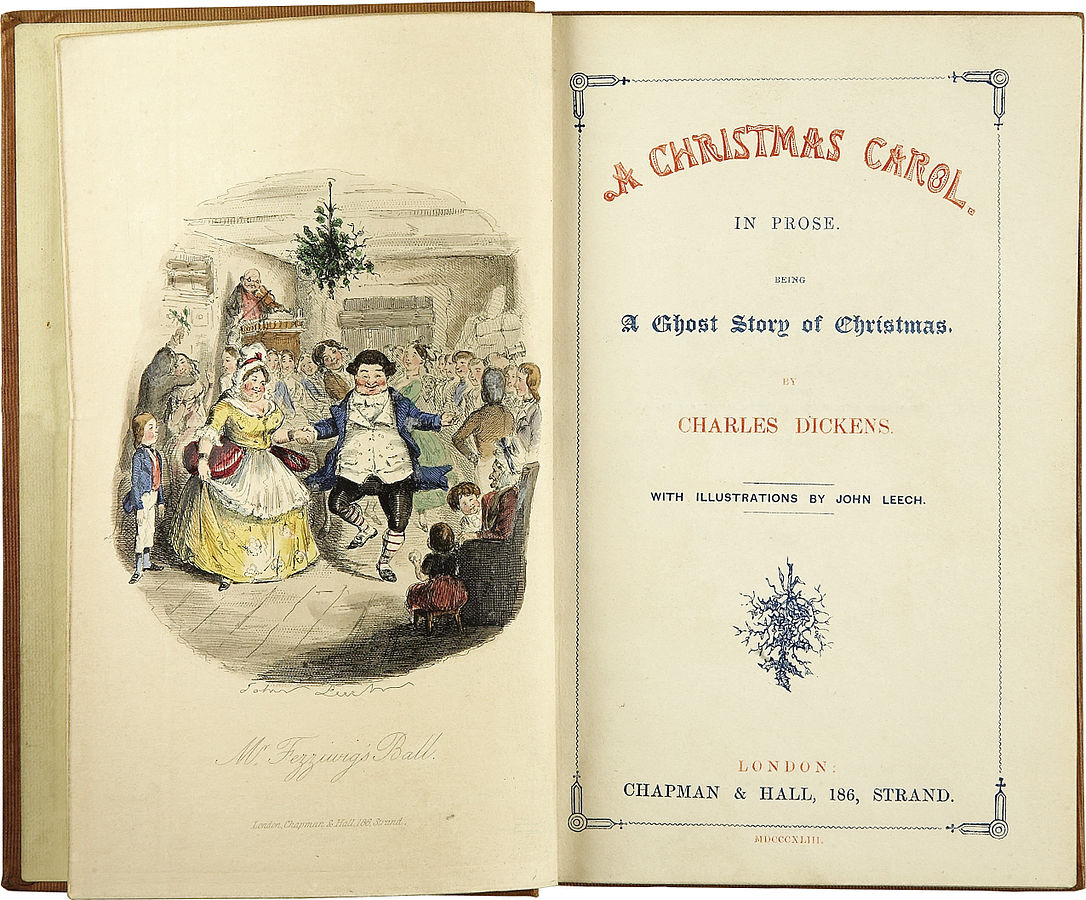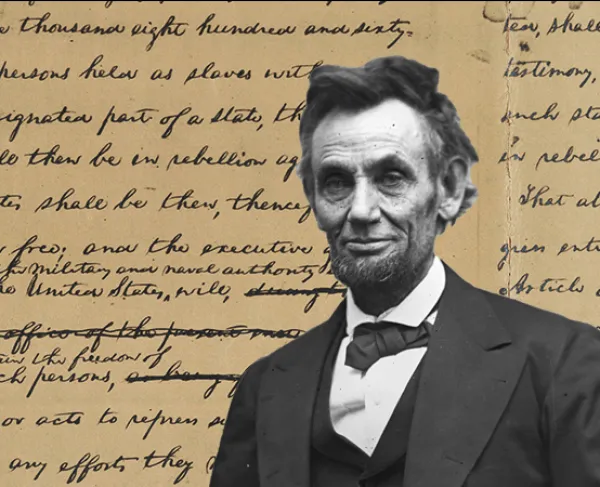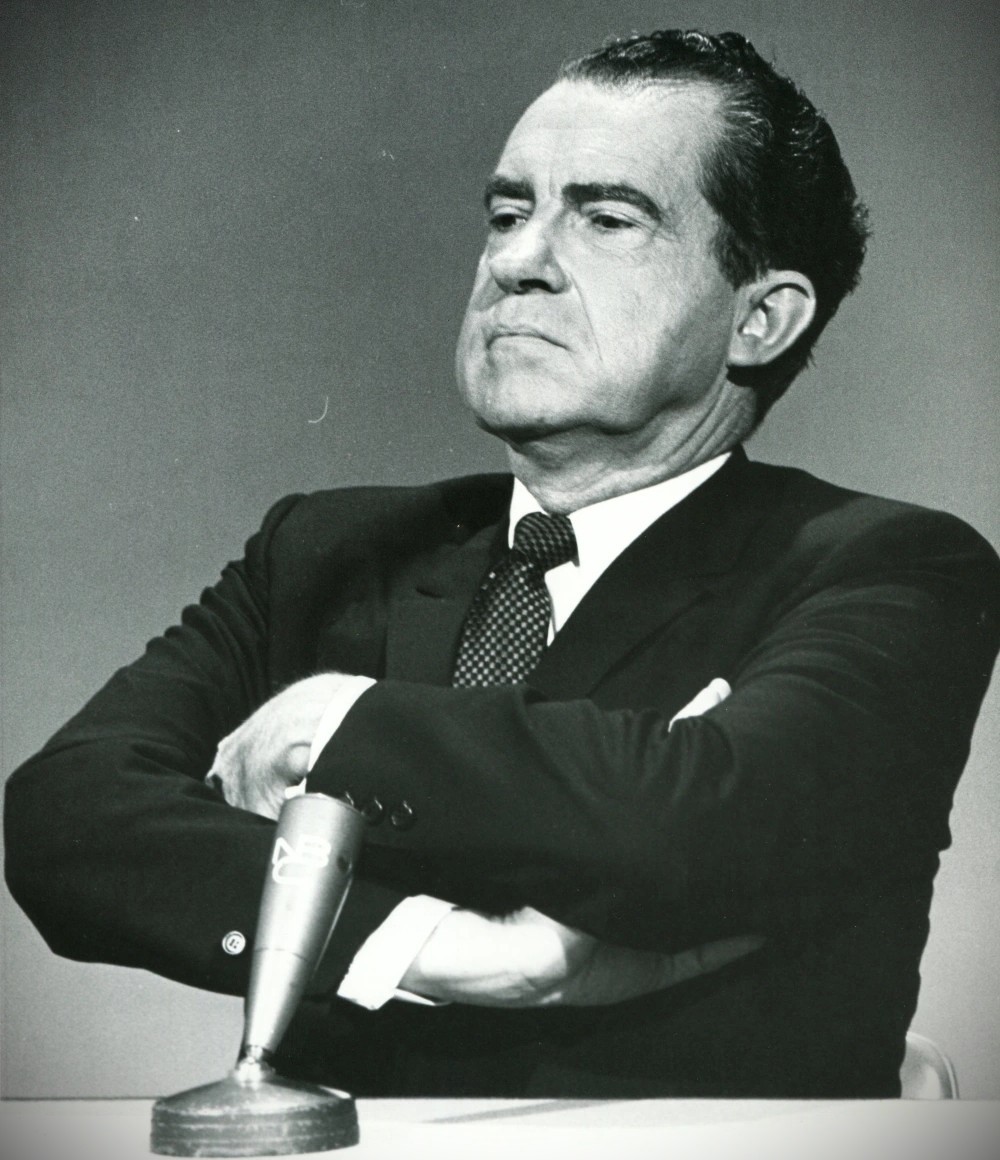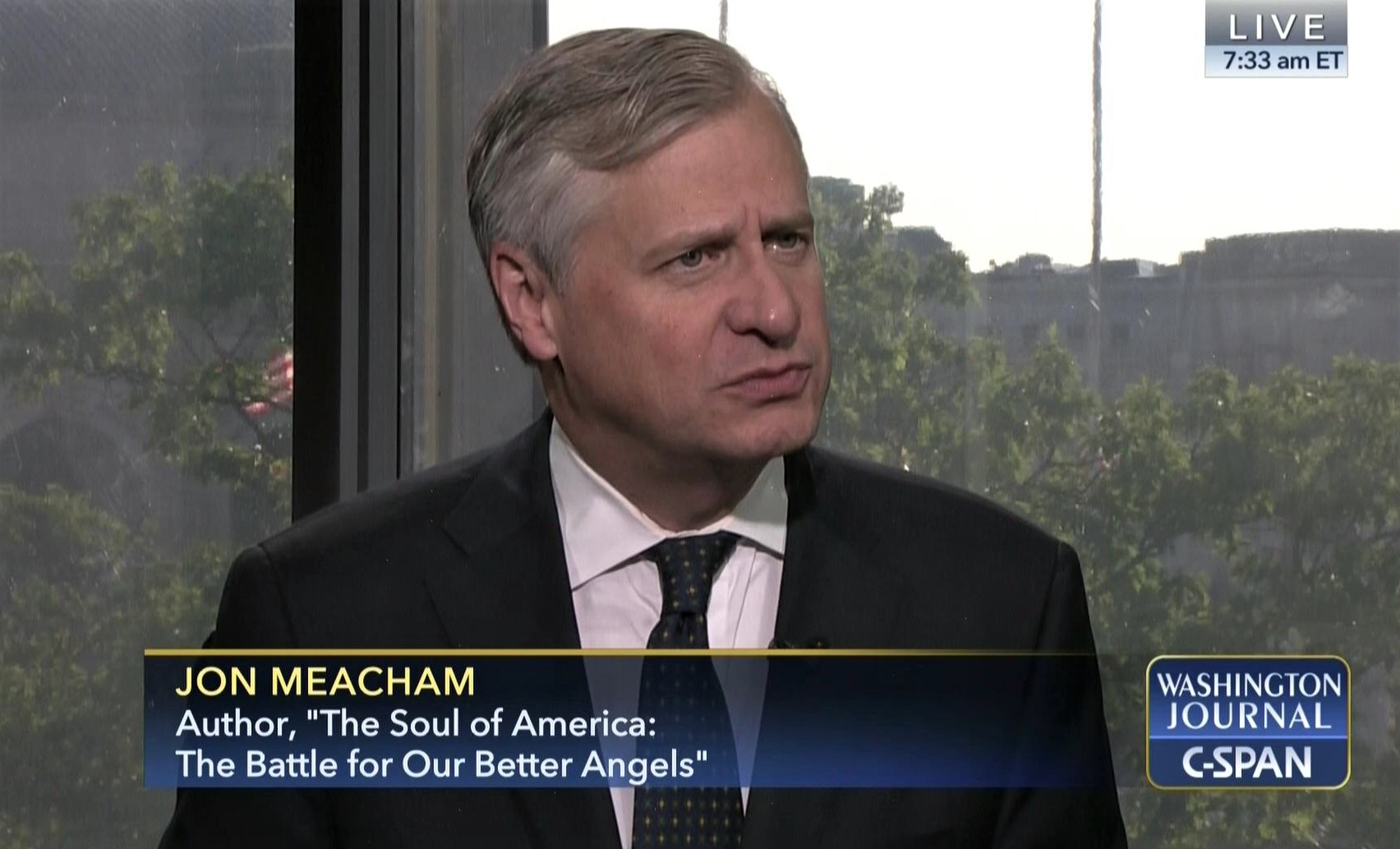Historian Jon Meacham has become a reliable storyteller of past presidents. They come alive in his pages through the many stories that illustrate who they were and what they stood for. However, in The Soul of America – the Battle for Our Better Angels, Meacham is concerned with more than historical biography.
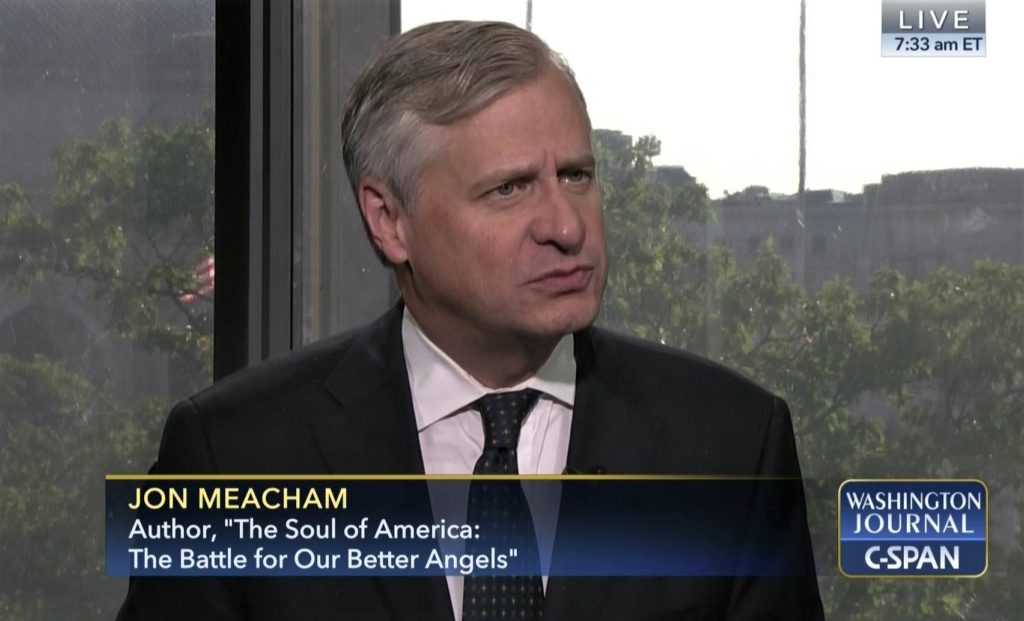
Alarmed by the man who inhabits the White House, “The idea,” Meacham tells NPR’s Dave Davies, “came after the terrible events in Charlottesville last August when the neo-Nazis and the Klansmen were demonstrating, and the counter-protester Heather Heyer was killed. And we found ourselves with a president of the United States who seemed unable to condemn neo-Nazis and Klansmen for violating a fundamental part of the American creed. And my sense was that, at heart, the American identity is a perennial conflict between our worst instincts and our best ones. … It’s a soul – an ethos that has room for Martin Luther King, but it also has room – from generation to generation – for the Ku Klux Klan and for hate and for fear.”
In one of many examples, Meacham explains to Davies that “Woodrow Wilson, who’s a deeply problematic character, but who wrote very well, lectured very well on the presidency… once said that the president can be as big a man as he can. And what we’ve learned in our experience, through these 230 years or so, is that the president can also be as small a man as he wants to be sometimes.”
Currently, we’re facing the latter.
In the book’s last chapter, Meacham explains how Harry Truman became that bigger man.
Early in his life, Truman privately used racial slurs, but when he became president, “he saw his duty whole,” Meacham writes.
After hearing that a newly discharged black soldier was beaten and blinded in South Carolina, Truman reacted, “My God! I had no idea it was as terrible as that! We’ve got to do something!
“Whatever my inclinations as a native of Missouri might have been,” Truman said, “as President I know this is bad. I shall fight to end evils like this.”
And he did, even in the face of strong Southern opposition, through his civil rights program which included anti-lynching legislation.
At a White House luncheon, a committeewoman from Alabama confronted the president.
“Can I tell [the people back home] that you’re not ramming miscegenation down our throats?” the woman asked. That you’re for all the people, not just the North?
Truman took out a copy of the Constitution that he carried in his pocket, and began reading the Bill of Rights followed by each amendment. When he finished, the president looked the woman in the eye and said, “Those – the Bill of Rights – applies to everybody in this country [and] don’t you forget it.”
Reminded of that moment years later, Truman said, “I was just thinking of that old woman’s face when I started reading her the Bill of Rights. It was quite a sight, but you know something? It’s not a bad idea to read those ten amendments every once in a while. Not enough people do, and that’s one of the reasons we’re in the trouble we’re in.”
Another one of those reasons is that we have a president who, by his own admission, doesn’t read and probably doesn’t understand much of the rights that represent a safeguard to individual liberty as well as limits to the power of government.
The book begins with some of Abraham Lincoln’s most iconic and quoted words from his first inaugural address:
“We are not enemies but friends. We must not be enemies. Though passion may have strained it must not break our bonds of affection. The mystic chords of memory, stretching from every battlefield and patriot grave to every living heart and hearthstone all over this broad land, will yet swell the chorus of the Union, when again touched, as surely they will be, by the better angels of our nature.”
However, Meacham reminds us that despite those inspiring words and pleas for unity, the country headed toward a great civil war.
The challenges we face today are, in many respects, no less daunting with a president who lies as reflexively as he breathes; who, unashamedly tells a reporter – when asked why he continues to attack the press as “fake news,” says, “You know why I do it? I do it … so when you write negative stories about me, no one will believe you.”
We are living through deeply troubling times. Yes, the country has survived worse, but in an age where disinformation and lies submerge veracity, and elected leaders speak little and act less in response to it, you have to wonder who will stand up for truth? Who will lead us out of this fever of fear and hate? Who will be “as big a man as he can”?
There’s a place for politics in this great Republic, but it’s not first place. First place belongs to facts and truth. Despite the advancement of instant information, we have yet to learn that lesson.
America is at another crossroads, searching for those better angels, struggling to find its soul, again.
Comments
